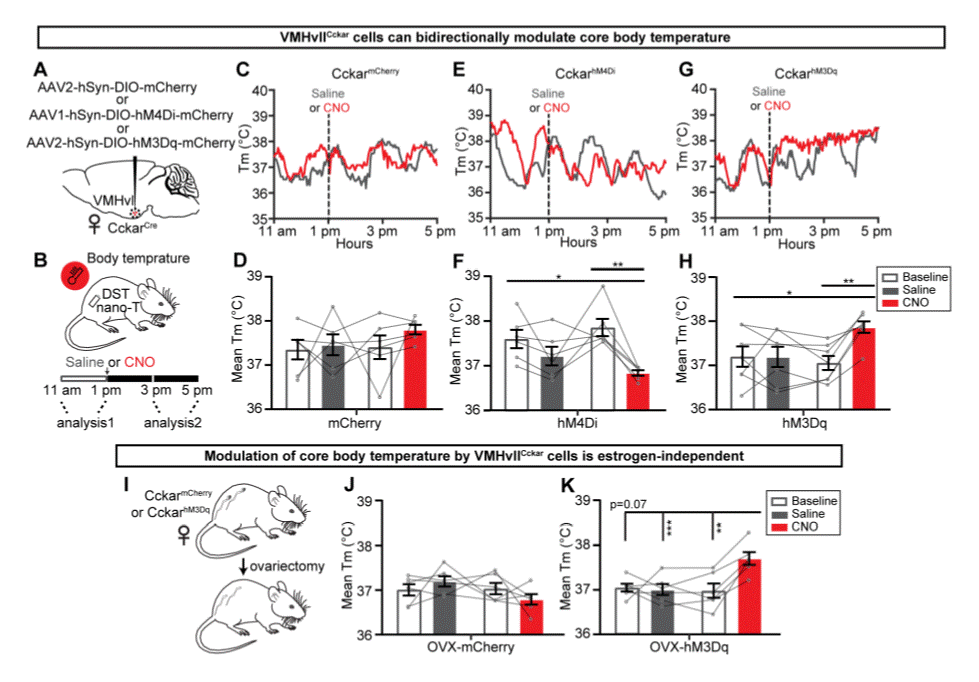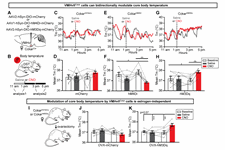News

Ventrolateral Locus in the Hypothalamus Affects Sexual Behaviour and Body Temperature
One of the fundamental behaviours of mammalian species is sexual behaviour, which is crucial for the survival of the species. Sexual hormones are known to be implicated in behavioural changes during the reproductive cycle. What remains in the dark is the underlying cellular functions and connections linked to the reproductive cycle. The ventrolateral part of the hypothalamus is an essential location for sexual behaviour and recent studies show complex diversity of the cells in this area. In a current study, published in Neuron, scientists show the effect of activating or deactivating the cholecystokinin A receptor in the cells of the hypothalamus has on sexual behaviour.
Core body temperature measured during the dark phase
Scientists from the NYU Langone Medical Center,, USA, measured core body temperature by implanting mice with Star-Oddi’s DST nano-T loggers intra-peritoneally and attaching the loggers to the abdominal wall. The loggers were set to take measurements during the dark phase, or from 11 am to 5 pm, every other day with measurement interval of 2 minutes. Saline and CNO were injected in a randomized order at 1 pm on separate days.
Chemogenetic inhibition of the ventrolateral hypothalamus suppresses sexual behaviour of females
Injection of clozapine N-oxide (CNO) increased rejection of sexually interested males greatly, as to compared to saline injection. The changes in behaviour were not due to different movements. The effects of CNO on core body temperature in mice with the gene hM4Di showed a decrease in average body temperature, where the temperature dropped to the lowest range of normal temperature.
Chemogenetic activation of the ventrolateral hypothalamus boosts sexual behaviour of females
Female mice with virally expressed hM3Dq that received the CNO injection rejected the males attempt to mount less frequently and showed the males more interested than female mice that received saline injections. Ovariectomized mice also showed increased sexual behaviour. The activation in these mice raised the core body temperature to the top of the normal temperature range in both intact and ovariectomized mice.
Further interesting results can be accessed in the article published in Neuron and can be accessed here
Photo is Figure S8 from the article shows estrogen independent bi-directional modulation of core body temperature
